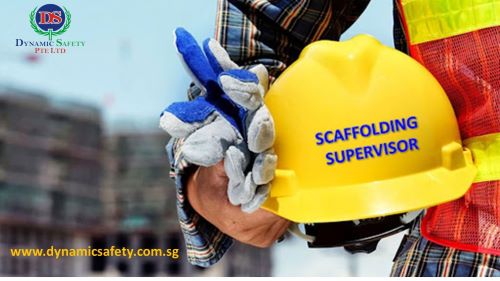



Blog
WHO CAN BE A SCAFFOLD SUPERVISOR?

Providing scaffold services at a high level requires adequate supervision, in addition to ensuring safety and ensuring consistent outcomes for customers and end users.
Scaffold supervisors can provide support and motivation to scaffold workers working under demanding conditions, and can contribute greatly to the cohesion of construction projects.
When are scaffolding supervisors needed?
A competent person must design, erect, alter, and dismantle scaffolds, and any work must be done under the supervision of a competent supervisor, according to HSE guidelines. According to the Work at Height Regulations 2005, this is a legal requirement.
For scaffold workers to complete tasks on time or meet deadlines, supervision is essential across all settings.
What is the role of a scaffold supervisor?
Scaffold supervisors are in charge of managing teams of scaffolders, inspecting them, and communicating with clients and customers.
Through supervision, a collaborative environment for integrated practice is enabled and quality of practice improved. Additionally, supervisors support a learning culture by promoting professional development for workers, as well as overseeing codes of practice and safety compliance.
Who can be a scaffolding supervisor?
The worker must be qualified and have a current scaffold supervisor card when designating a scaffold supervisor. This indicates that they have to have participated in and finished an appropriate training course, like the CISRS Scaffolding Supervisor Course.
Remember that supervisors must be outstanding communicators because they will be interacting with a huge staff as well as clients and other parties. Additional requirements for a course on scaffold supervisors are as follows:
1. holders of CITB Health, Safety, and Environment (HS&E) Supervisors cards (or equivalent training); this must have been completed and passed no later than 23 months prior to the start of the course.
2. Knowledge in written and spoken English.
Scaffold supervisors can provide support and motivation to scaffold workers working under demanding conditions, and can contribute greatly to the cohesion of construction projects.
When are scaffolding supervisors needed?
A competent person must design, erect, alter, and dismantle scaffolds, and any work must be done under the supervision of a competent supervisor, according to HSE guidelines. According to the Work at Height Regulations 2005, this is a legal requirement.
For scaffold workers to complete tasks on time or meet deadlines, supervision is essential across all settings.
What is the role of a scaffold supervisor?
Scaffold supervisors are in charge of managing teams of scaffolders, inspecting them, and communicating with clients and customers.
Through supervision, a collaborative environment for integrated practice is enabled and quality of practice improved. Additionally, supervisors support a learning culture by promoting professional development for workers, as well as overseeing codes of practice and safety compliance.
Who can be a scaffolding supervisor?
The worker must be qualified and have a current scaffold supervisor card when designating a scaffold supervisor. This indicates that they have to have participated in and finished an appropriate training course, like the CISRS Scaffolding Supervisor Course.
Remember that supervisors must be outstanding communicators because they will be interacting with a huge staff as well as clients and other parties. Additional requirements for a course on scaffold supervisors are as follows:
1. holders of CITB Health, Safety, and Environment (HS&E) Supervisors cards (or equivalent training); this must have been completed and passed no later than 23 months prior to the start of the course.
2. Knowledge in written and spoken English.

